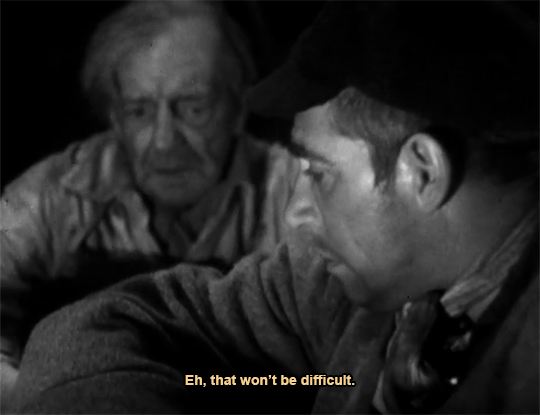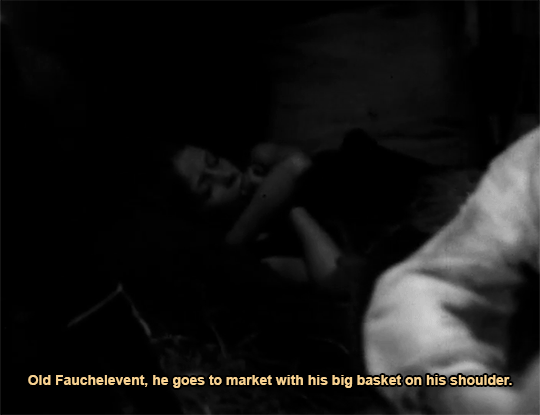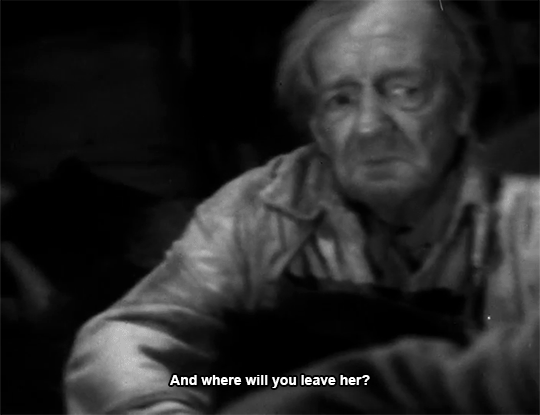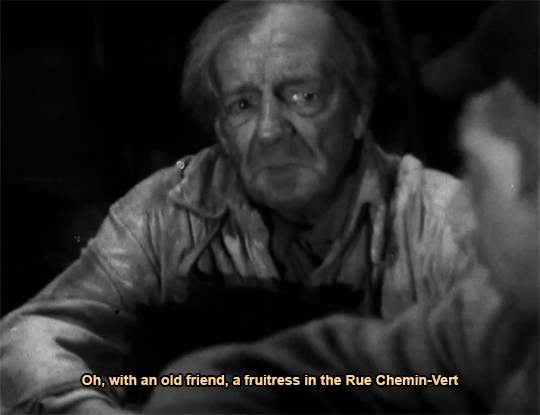#convent digression
Text
There are two points about this chapter that I missed last year. Firstly, there's another reminder that convents are scarcely better than prisons, particularly in terms of inflicting suffering and torture. Hugo describes in pace same way he would describe dungeons under the Châtelet.
Secondly, his statements about nuns: “women who think themselves wives,” yet they are obviously not wives, nor do they think or truly live; instead, they seem to exhale death. And Hugo is very bold in using this metaphor: “At night, the beautiful, nude young man descended from the cross and became the ecstasy of the cloistered one.” This is very typical for Hugo to be mean—or just weird—about unmarried/celibate women. In contrast, the novel features celibate men like Valjean, Javert, and Enjolras, and their self-imposed virginity is not met with the same judgment, highlighting societal double standards regarding sexuality and gender roles.
39 notes
·
View notes
Text
“To prove this, we will confine ourselves to recording here and to briefly mentioning a real and incontestable fact, which, however, bears no reference in itself to, and is not connected by any thread whatever with the story which we are relating.”
Hugo why are you digressing in the middle of a digression
#les mis letters#lm 2.6.5#convent digression#I make fun of him but honestly I'm prone to digressions in writing too#I'm just not writing 1000+ page epics#that can therefore fit 50+ page digressions#I think I envy his ranting abilities
110 notes
·
View notes
Text
I found the spell Circle of Death while looking at Arcanums for kicks and I need to ask: does ANYONE use this in regular play and if so, are your PCs on trial for war crimes?
Circle of Death
6th-level necromancy
Casting Time: 1 action
Range: 150 feet
Components: V, S, M (the powder of a crushed black pearl worth at least 500 gp)
Duration: Instantaneous
A sphere of negative energy ripples out in a 60-foot-radius sphere from a point within range. Each creature in that area must make a Constitution saving throw. A target takes 8d6 necrotic damage on a failed save, or half as much damage on a successful one.
#HOW ARE YOU AVOIDING FRIENDLY FIRE WITH THAT LARGE OF AN AOE RADIUS. HOLY HELL.#to be clear. this was for an active war criminal of a character lmfao.#will they have an arcanum level-wise? dunno yet. bUT.#this is like. a literal war crime tho lmfao.#contrary to popular belief there ARE theories of universal war crimes and I am pretty sure this qualifies.#(this is also why I get annoyed at 'um there's no geneva convention in exandria lol' takes.#do you think that's the only fucking defined usage of legal limitations on law. and have you ever opened a history book or.)#ANYWAY I DIGRESS#dungeons and dragons
121 notes
·
View notes
Text
Saw an old post on reddit about the fourth Doctor and his companions, and someone under it said that Four didn't even care about them cause he was always dismissive and/or mean etc..... But they must not know him like I know him then cause w h a t. What do you mean he didn't care? Did we witness the same character??
#just because hes not affectionate in a conventional way doesnt mean hes heartless either#idk what my point is here#actually i do and its that he cares about his companions just as much as the other incarnations do#and that just because he doesnt always show it directly doesnt make it any less true#almost all versions of the doctor can be mean/dismissive sometimes but when it comes down to it they care and theyre kind#idk maybe i got him wrong and hes just cold and callous most of the time but I digress#i think he cares a lot about his friends and i will die on that hill#fourth doctor#classic who#doctor who
30 notes
·
View notes
Text
The vocal mother said to the prioress in a low voice
“He answers well.”
Jean Valjean had not uttered a single word. – les mis, 2.8.8
this book is a goddamn comedy
#les mis#les mis letters#les mis daily#stop being so funny hugo#or ill forget to be upset about the convent digressions from earlier
57 notes
·
View notes
Text
This shit is about to piss me off!!! Vote for clexa cuz I refuse to have the most iconic and influential wlw ship lose to some lines and colors goddammit 😤😤😤😤😤
https://x.com/dykejedis/status/1777151865349632269?s=46&t=qQfDN6w57AhyTovxMAeXzQ
#I h8 cartoons – a personal grief#there’s no question that this pointless poll with no real world consequences should come down to clexa & xena and then clexa should win for#starting a whole movement kicking off the billboard trend and creating a whole convention but I digress#clexa#commander lexa#clarke griffin#clarke x lexa
7 notes
·
View notes
Text
4.15.10: Oh boy, exactly what my Les Mis reading experience has been missing: Vicky being weird about virginity.
#shitposting through les mis#look I know we got the primer in the convent digression#but consider: I have serious doubts about this white rose blushing story he refers to#anyway I'm probably going to be more active again starting soon-ish#just because I'm trying really really hard to draw more boundaries with my job#and am also taking a break from other hobbies for a bit for stress-related reasons#les mis#thicc bricc#thicc vicc#thicctor hugo#vicky huge-hoe
24 notes
·
View notes
Photo





LES MIS LETTERS IN ADAPTATION - Which Treats of the Manner of Entering a Convent, LM 2.8.1 (Les Miserables 1967)
“It will be easy enough for her to get out of here. I have my service door which opens on the courtyard. I knock. The porter opens; I have my vintage basket on my back, the child is in it, I go out. Father Fauchelevent goes out with his basket—that is perfectly natural. You will tell the child to keep very quiet. She will be under the cover. I will leave her for whatever time is required with a good old friend, a fruit-seller whom I know in the Rue Chemin-Vert, who is deaf, and who has a little bed. I will shout in the fruit-seller’s ear, that she is a niece of mine, and that she is to keep her for me until to-morrow. Then the little one will re-enter with you; for I will contrive to have you re-enter. It must be done. But how will you manage to get out?”
#Les Mis#les Mis Letters#Les Mis Letters in Adaptation#Les Mis 1967#Les Miserables 1967#Valjean#Fauchelevent#Jean Valjean#Cosette#Cosette Fauchelevent#Frank Finlay#lesmisedit#lesmiserablesedit#lesmiserables1967edit#pureanonedits#andddd we're back!#convent digression is over!
31 notes
·
View notes
Text
Me, after having been behind on Les Mis Letters for many days: Oh, wait, it's convent digression time? HECK YEAH!
#les mis letters#i actually love these ones#a lot#some of my fave parts of the book are in the convent digression
29 notes
·
View notes
Text
remembering that particularly odd corner of Tumblr I stumbled into a while back (full of terfs of course, lot of blocking done that day) which was going on about this practice of "female separatism".
so apparently you're meant to cut off any male friends, avoid consuming content by male artists, refuse to hire men if you're in that position, avoid wearing clothing that conforms to "male standards of attraction" (i.e. revealing), etc., etc.
anyway, how on earth do you fuck up feminism so badly you become an 1800s Bernadine nun?
#we're up to the convent digression in les mis letters and i suddenly thought 'hmmmm sounds extremely familiar'#getting pretty ridiculous methinks
18 notes
·
View notes
Text
the whole "valjean escaping from the convent" section is the funniest thing I've ever read. Like yeah dude get in this coffin. We'll start to bury you alive but no worries I'll dig you up again. There's absolutely no way this could go wrong. Don't worry about it.
69 notes
·
View notes
Text
The convent’s boarding school for girls is introduced, the place where Cosette will spend the rest of her childhood. An important detail is that the girls there come from "noble and mostly wealthy families," indicating that Cosette will interact with peers from upper social classes. This upbringing will inevitably widen the gap between her and Valjean.
Hugo continues to provide fabricated evidence about his fictitious convent, this time by citing the words of one of the girls, as if confirming his assertion that nuns instil in girls a "horror of the world and of the age." However, we later learn that Cosette adapted quite quickly and easily to the world outside the convent walls.
It’s also interesting to observe how differently nuns and children perceive the significance of girls participating in festivities and adhering to the austere practices of the order. Girls were not motivated by a desire to join the convent someday; instead, they found it entertaining: “It was new; it gave them a change.”
27 notes
·
View notes
Text
This chapter is super short, so I’ll just go paragraph by paragraph:
“This book is a drama, whose leading personage is the Infinite.
“Man is the second.”
The Infinite is back! Technically, it never leaves, but it’s been a while since we got an explicit reference to it. Its placement as the “hero” is interesting; this novel is very focused on “Man,” both in the sense that we follow people dealing with structures made by other people and in the sense that the apparent protagonist, Jean Valjean, is the “Everyman” in everything aside from his strength. The Infinite is less visible (although Hugo brings it up often), but with this order of heroes, it suddenly makes sense that we began with the bishop and not with Jean Valjean. The bishop is a person, of course, but as a religious figure, his role is to contemplate the Infinite even as he helps others. In some ways, he’s a bridge between these two “heroes.”
“ Such being the case, and a convent having happened to be on our road, it has been our duty to enter it. Why? Because the convent, which is common to the Orient as well as to the Occident, to antiquity as well as to modern times, to paganism, to Buddhism, to Mahometanism, as well as to Christianity, is one of the optical apparatuses applied by man to the Infinite. ”
Here, Hugo argues that analyzing the convent was necessary because it’s “universal” as a way of approaching the “Infinite.” While this is debatable (it seems like an oversimplification), it’s interesting to see this attempt at universalizing the novel (if the Infinite is the hero, then its message applies everywhere). Hugo’s done this before, in the preface; he stated that the novel will be relevant as long as poverty exists, universalizing it across time. Here, he does so across space. It’s also fitting that this happens in a digression, as although the book’s themes can be transferred across many contexts (there’s a reason so many people still enjoy it and its various adaptations today, in many different places), the book itself is very much a product of 19th-century France. This is part of the appeal as well; the places Hugo describes are so specific (whether they’re fictional or not), and the way the historical context is linked to characters and events really enriches the story. By moving towards an exploration of the “Infinite,” we’re also zooming out on this French context, allowing Hugo to remind us of his novel’s broader aims.
“ This is not the place for enlarging disproportionately on certain ideas; nevertheless, while absolutely maintaining our reserves, our restrictions, and even our indignations, we must say that every time we encounter man in the Infinite, either well or ill understood, we feel ourselves overpowered with respect. There is, in the synagogue, in the mosque, in the pagoda, in the wigwam, a hideous side which we execrate, and a sublime side, which we adore. What a contemplation for the mind, and what endless food for thought, is the reverberation of God upon the human wall! ”
I can’t tell what Hugo is referring to when he says this isn’t the place to develop "certain ideas” “disproportionately;” is this tied to the novel (avoiding yet another digression)? The state (censorship if he elaborates)? Himself (not wanting to support a total rejection of religion)? Also, while I recognize that his comments on other religious buildings are meant to mean his comments here aren’t specifically targeting Christianity (even if this is a Christian structure) but are instead part of the issue with religions that encourage good (engaging with the Infinite) while having unjust structures, it’s very uncomfortable to only see non-Christian buildings singled out in this paragraph as sites deserving of “execration” and “adoration.” Part of the issue is that, as much as this book can speak across time and space, Hugo is still very much a 19th-century French man. Hearing him reference other places (particularly outside of Europe) and religions besides Christianity could go very badly.
#les mis letters#lm 2.7.1#the Infinite#I've read Hugo's Napoleon poetry and that's why I get very worried when he starts mentioning other religions#and other regions#I know his views are pretty horrible and unpleasant to read#but I'm also relieved to be leaving the convent digression in some way#this is still convent-related but at least it requires less convent-specific knowledge#I understand what he's saying more easily
22 notes
·
View notes
Text
Fell behind on LML,so no time for serious analysis, but 4.7.1 is Hugo showing off his Duolingo argot skills
#Les miserables#4.7.1#les miserables letters#brickclub#What's the use of poetry asks the poet#Rhetorically#After showing how it keeps the soul alive#And then there's the call back to the self-inflicted toture cells from the convent digression#Lots of fascinating elements in this chapter
7 notes
·
View notes
Text
Le jour où une novice fait profession, on l'habille de ses plus beaux atours, on la coiffe de roses blanches, on lustre et on boucle ses cheveux, puis elle se prosterne; on étend sur elle un grand voile noir et l'on chante l'office des morts. Alors les religieuses se divisent en deux files, une file passe près d'elle en disant d'un accent plaintif: notre sœur est morte, et l'autre file répond d'une voix éclatante: vivante en Jésus-Christ! (p. 628)
these nuns are so goth oh my god
#notre soeur est morte 😔#...vivante en Jésus-Christ! heyoooo!#that's right lads we're in the convent digression#fun story i assumed a phrase i didn't know was 'hair shirt'#and so ended up interpreting one passage as saying that the nuns wear hair shirts for six months out of the year#but it didn't mean hair shirt lol. it meant like thick wool shirt or something#phew#these nuns are still really extra but i'm glad they don't wear hair shirts for six months of the year#les mis#my posts
23 notes
·
View notes
Text
Edward Said: orientalism was used in fiction to highlight and contrast the differences of the supposed east and west
me: oh yeah like with victor hugo
Said: [...] such as Victor Hugo
me: aYY
#love being on the same page Said#argot digression lovers dni#sewer and convent digression lovers are fine but still
2 notes
·
View notes